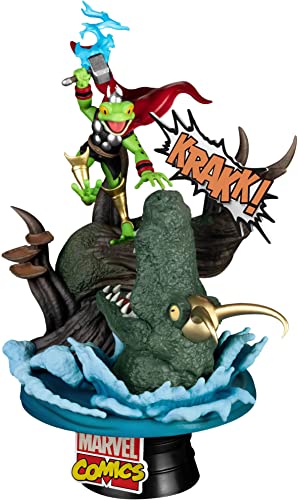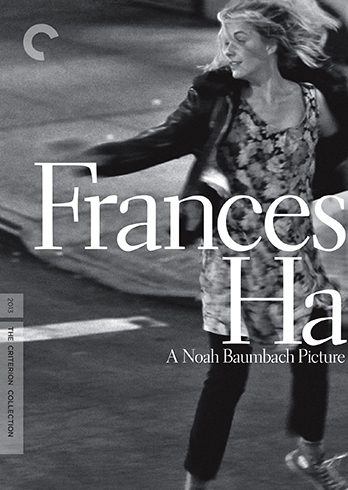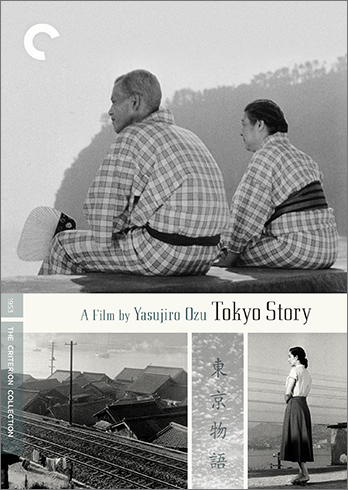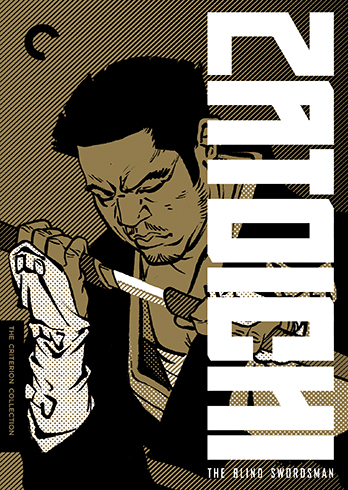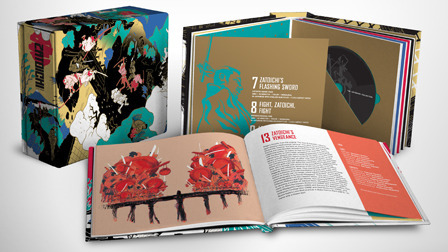The Criterion Collection has announced four titles for Blu-ray release in November: On November 12th, the studio will release Noah Baumbach's Frances Ha (2013) and Charlie Chaplin's City Lights (1931). On November 19th, the studio will release Yasujiro Ozu's Tokyo Story (1953). And on November 26th, the studio will release Zatoichi: The Blind Swordsman, a box-set containing 25 films featuring the legendary samurai warrior.
Frances Ha -
Greta Gerwig is radiant as a woman in her late twenties in contemporary New York, trying to sort out her ambitions, her finances, and, above all, her tight but changing bond with her best friend, Sophie (Mickey Sumner). Meticulously directed by Noah Baumbach with a free-and-easy vibe reminiscent of the French New Wave's most spirited films, and written by Baumbach and Gerwig with an effortless combination of sweetness and wit, Frances Ha gets at both the frustrations and the joys of being young and unsure of where to go next. This wry and sparkling city romance is a testament to the ongoing vitality of independent American cinema.
Special Features:
New high-definition digital master, with DTS-HD 5.1 Master Audio on the Blu-ray
New conversation between filmmaker Peter Bogdanovich and the film's cowriter and director, Noah Baumbach
New conversation between actor and filmmaker Sarah Polley and the film's cowriter and star, Greta Gerwig
New conversation about the look of the film between Baumbach, director of photography Sam Levy, and creative director Pascal Dangin
Trailer
PLUS: A booklet featuring an essay by playwright Annie Baker
City Lights -
The most cherished film by Charlie Chaplin is also his ultimate Little Tramp chronicle. The writer-director-star achieved new levels of grace, in both physical comedy and dramatic poignancy, with this silent tale of a lovable vagrant falling for a young blind woman who sells flowers on the street (a magical Virginia Cherrill) and mistakes him for a millionaire. Though this Depression-era smash was made after the advent of sound, Chaplin remained steadfast in his love for the expressive beauty of the pre-talkie form. The result was the epitome of his art and the crowning achievement of silent comedy.
Special Features:
New, restored 4K digital film transfer, with uncompressed monaural soundtrack on the Blu-ray
New audio commentary by Charlie Chaplin biographer Jeffrey Vance
Chaplin Today: "City Lights," a 2003 documentary on the film's production, featuring Aardman Animations cofounder Peter Lord
Chaplin Studios: Creative Freedom by Design, a new interview program featuring visual effects expert Craig Barron
Archival footage from the production of City Lights, including film from the set, with audio commentary by Chaplin historian Hooman Mehran; a costume test; a rehearsal; and a complete scene not used in the film
Excerpt from Chaplin's short film The Champion (1915), along with footage of the director with boxing stars at Chaplin Studios in 1918
Trailers
PLUS: A booklet featuring an essay by critic Gary Giddins and a 1966 interview with Chaplin
Tokyo Story -
A profoundly stirring evocation of elemental humanity and universal heartbreak, Tokyo Story is the crowning achievement of the unparalleled Yasujiro Ozu. The film, which follows an aging couple as they leave their rural village to visit their two married children in bustling postwar Tokyo, surveys the rich and complex world of family life with the director's customary delicacy and incisive perspective on social mores. Featuring lovely performances from Ozu regulars Chishu Ryu and Setsuko Hara, Tokyo Story plumbs and deepens the director's recurring themes of generational conflict, creating what is without question one of cinema's mightiest masterpieces.
Special Features:
New 4K digital restoration, with uncompressed monaural soundtrack on the Blu-ray
Audio commentary featuring Yasujiro Ozu scholar David Desser, editor of Ozu's "Tokyo Story"
I Lived, But . . . , a two-hour documentary from 1953 about Ozu's life and career, featuring interviews with critics and former cast and crew members
Talking with Ozu, a forty-minute tribute to the director from 1993, featuring the reflections of filmmakers Lindsay Anderson, Claire Denis, Hou Hsiao-hsien, Aki Kaurismäki, Stanley Kwan, Paul Schrader, and Wim Wenders
Trailer
New English subtitle translation
PLUS: A booklet featuring an essay by critic David Bordwell
Zatôichi: The Blind Swordsman -
The colossally popular Zatoichi films make up the longest-running action series in Japanese history and created one of the screen's great heroes: an itinerant blind masseur who also happens to be a lightning-fast swordsman. As this iconic figure, the charismatic and earthy Shintaro Katsu became an instant superstar, lending a larger-than-life presence to the thrilling adventures of a man who lives staunchly by a code of honor and delivers justice in every town and village he enters. The films that feature him are variously pulse-pounding, hilarious, stirring, and completely off-the-wall. This deluxe set features the string of twenty-five Zatoichi films made between 1962 and 1973, collected in one package for the first time.
Box-set content:
The Tale of Zatoichi, Directed by Kenji Misumi (1962)
The epic saga of Zatoichi begins. As tensions mount between rival yakuza clans, one boss hires a formidable but ailing ronin as his clan's muscle—while the other employs a humble, moral blind masseur named Ichi. With its lightning-fast swordplay, sleight-of-hand dice games, and codes of honor upheld and betrayed, this first chapter sets the stage for all the Zatoichi adventures to come. And Shintaro Katsu brings author Kan Shimozawa's blind swordsman to vivid life, making the character excitingly, indelibly his own.
The Tale of Zatoichi Continues, Directed by Kazuo Mori (1962)
The Tale of Zatoichi proved so popular that a follow-up went into production the same year. Here, Zatoichi is hired to give a massage to a powerful political official who, he discovers, is mentally ill—a secret that the nobleman's retinue is determined to keep at any cost. This second Zatoichi film picks up the pace, featuring bigger action sequences, tighter plotting, and a mysterious one-armed swordsman played by star Shintaro Katsu's brother Tomisaburo Wakayama (Lone Wolf and Cub).
New Tale of Zatoichi, Directed by Tokuzô Tanaka (1963)
Zatoichi is back—and in color! Hoping to leave violence behind, the blind masseur wanders to a village, where he meets an old friend fallen on hard times. With a corrupt clan leader squeezing citizens dry and the brother of a past nemesis out for payback, Zatoichi finds that he cannot abandon his true calling.
Zatoichi the Fugitive, Directed by Tokuzô Tanaka (1963)
Zatoichi triumphs at a village wrestling match, much to the chagrin of his yakuza opponents. The defeated gang members pay a hotheaded ronin to take out the masseur; unbeknownst to them, the hired assassin is married to a former flame of Zatoichi's, further complicating matters.
Zatoichi on the Road, Directed by Kimiyoshi Yasuda (1963)
The itinerant Zatoichi comes across a dying man, who begs the masseur to escort a young woman back to her family in Edo. The honorable swordsman agrees, but in so doing, he catapults himself between two warring yakuza clans, each with its own interest in kidnapping the girl.
Zatoichi and the Chest of Gold, Directed by Kazuo Ikehiro (1964)
After arriving in a small village, Zatoichi finds himself accused of stealing the citizens' hefty tax payments. To clear his name, he must face off against a corrupt official, a succession of hired blades, and a bullwhip-wielding titan, played by star Shintaro Katsu's brother Tomisaburo Wakayama. This sixth installment of the increasingly popular and prestigious Zatoichi series features ravishing visuals by Rashomon cinematographer Kazuo Miyagawa.
Zatoichi's Flashing Sword, Directed by Kazuo Ikehiro (1964)
The blind swordsman is shot and nursed back to health by kind strangers. He soon discovers that his saviors are caught between sparring crime lords; bound by honor, Zatoichi stays to ensure their safety. Along the way, we learn more about the origins of Zatoichi's amazing abilities, and get to see them in action in a stunning underwater duel and a nighttime clash set against fireworks.
Fight, Zatoichi, Fight, Directed by Kenji Misumi (1964)
While on the road, Zatoichi befriends a young mother right before she is savagely murdered. Promising her that he will hand over her baby to its father, the blind masseur embarks on an adventure both sentimental and beset by perilous action. This eighth Zatoichi feature is an excellent showcase for star Shintaro Katsu, who evinces an extraordinary physical and emotional range as the blind swordsman, here father, mother, husband, and reluctant killer all at once.
Adventures of Zatoichi, Directed by Kimiyoshi Yasuda (1964)
The blind swordsman wanders into a town to celebrate the New Year. There, he befriends a young woman whose father has gone missing; as he tries to help her find him, he becomes entangled in a web of corruption and a series of tragic twists of fate. Returning director Kimiyoshi Yasuda and screenwriter Shozaburo Asai masterfully weave together a variety of narrative threads and tonal registers, all while playfully tweaking the conventions and motifs of the series.
Zatoichi's Revenge, Directed by Akira Inoue (1965)
Nearing the village of his sensei, Zatoichi decides to pay the teacher a visit, only to learn that he has been murdered and his daughter forced into prostitution. Ichi's investigation into these injustices uncovers a corrupt alliance between government officials and criminals, putting the blind swordsman on a bloody path of retribution in one of the series' darkest entries.
Zatoichi and the Doomed Man, Directed by Kazuo Mori (1965)
An elderly prisoner accused of murder begs Zatoichi to find evidence of his innocence. The blind swordsman, for the first time, chooses not to help, but fate has other plans for him. Director Issei Mori, who played a significant role in getting Shintaro Katsu cast as Zatoichi in the first place, shows his filmmaking flair, delivering bloody battles and raucous humor while mischievously upending narrative expectations.
Zatoichi and the Chess Expert, Directed by Kenji Misumi (1965)
Kenji Misumi, who directed the first installment of the Zatoichi series, returns with this tale in which the blind swordsman once again finds himself the protector of a child: a little girl pursued by both devious family members and bloodthirsty ruffians. Further complicating his journey is a new acquaintance—a tremendously skilled chess player (the charismatic Mikio Narita) who has mysterious motivations and a dark past.
Zatoichi's Vengeance, Directed by Tokuzô Tanaka (1966)
Zatoichi encounters a dying man, who asks the itinerant masseur to deliver a bag of money to his young son; he agrees to fulfill the request, finding the boy in a village terrorized by criminals. This is the first entry to scrutinize the swordsman's methods, as a blind monk confronts Zatoichi about his violent approach to problem solving and Zatoichi finds the child turning to the same bloodstained path.
Zatoichi's Pilgrimage, Directed by Kazuo Ikehiro (1966)
Troubled by his violent past, Zatoichi begins a journey to a series of shrines for a dose of cleansing spirituality. But as always, trouble isn't far behind, and the blind swordsman soon finds himself defending a widow from the self-interest of ruthless thugs and despicable townsfolk. Written by Kaneto Shindo (Onibaba), this fourteenth Zatoichi is a scathing attack on the upper classes and those who wield power, both in the criminal underworld and everyday society.
Zatoichi's Cane Sword, Directed by Kimiyoshi Yasuda (1967)
Wearying of his wandering lifestyle, Zatoichi yearns to settle down; unfortunately, when he does so it's in a town overrun by yakuza. He has an eye-opening encounter with the town's blacksmith, who reveals himself to be the apprentice of the man who forged Zatoichi's legendary cane sword, and informs Zatoichi that it's a hairline crack away from snapping. The news prompts Zatoichi to hang up his sword, yet leaving the fighting life and his code of honor behind proves not to be so simple.
Zatoichi the Outlaw, Directed by Satsuo Yamamoto (1967)
Zatoichi arrives in a town where a gambling house is kidnapping its poor, debt-ridden patrons. A rival establishment moves to pay those debts and free the peasants, but this second house's seemingly altruistic boss is actually laying the groundwork for a ruthless money-grabbing scheme. The sixteenth Zatoichi film is the first effort from its star's own Katsu Productions, and it is one of the series' most daring, with its complex characters, subversive social themes, and moral outrage.
Zatoichi Challenged, Directed by Kenji Misumi (1967)
A dying woman begs Zatoichi to reunite her son with the father he has never met, but when the blind masseur searches for the man, he discovers that he has been forced by a local yakuza boss to pay off his gambling debts in an unusual way: by painting illegal erotica. Determined to bring father and son together, Zatoichi pits his skills against the gangsters and a ronin who is not entirely what he seems.
Zatoichi and the Fugitives, Directed by Kimiyoshi Yasuda (1968)
The wandering swordsman finds himself in a small village that serves as hideout for a band of fugitives who control the town officials and enforce brutal slave labor in the local silk mill. This lean and mean entry is packed with coldhearted villainy and rough justice, but it finds its heart in the great Takashi Shimura (Ikiru), who plays a kindly country doctor caught up in a violent world.
Samaritan Zatoichi, Directed by Kenji Misumi (1968)
Hired by a yakuza boss to eliminate an accused debtor, Zatoichi fulfills his task, only to witness the victim's sister paying the owed amount minutes later. When the crime lord tries to possess the woman along with the cash, the blind swordsman wrestles with the injustice he has caused, and vows to protect the young lady at all costs.
Zatoichi Meets Yojimbo, Directed by Kihachi Okamoto (1970)
After a two-year absence from screens, the blind swordsman returns in one of his best adventures. Zatoichi treks to a village that has always been a favorite spot of his, only to discover that it's become a living hell, plagued by feuding father and son yakuza as well as the younger crime boss's bodyguard—Toshiro Mifune's scruffy, smart-mouthed, cash-hungry Yojimbo of legend. This is the sole Zatoichi effort from celebrated director Kihachi Okamoto, who supplies satirical vision and stylistic panache worthy of the two iconic characters at the film's center.
Zatoichi Goes to the Fire Festival, Directed by Kenji Misumi (1970)
Cowritten by star Shintaro Katsu, this adventure pits Zatoichi against one of his most diabolical foes: a blind yakuza boss whose reign of terror and exploitation has made him nearly mythic. Guest starring the legendary Tatsuya Nakadai as a ronin haunted by a traumatic past, and featuring an unforgettable nude swordfight in a bathhouse, this twenty-first entry in the series is a fan favorite.
Zatoichi Meets the One-Armed Swordman, Directed by Kimiyoshi Yasuda (1971)
It's East meets East when one of Japan's action idols crosses paths with an iconic kung-fu hero from Hong Kong. While traveling the countryside, Zatoichi comes across Wang Kang (Jimmy Wang Yu), a Chinese swordsman protecting a brutally orphaned young child. Despite the language barrier, the men forge a friendship, until nefarious enemies plant seeds of distrust to pit the two master martial artists against each other.
Zatoichi at Large, Directed by Kazuo Mori (1972)
Zatoichi comes across a pregnant woman dying from sword wounds and helps deliver her baby. Her final request to him: take the boy to see his father. From here, the film evolves into one of the wilder rides in the Zatochi series, including such quirky touches as a mysterious child who follows Ichi and pelts him with rocks, monkey performances, and an unexpectedly hilarious take on the ronin challenger.
Zatoichi in Desperation, Directed by Shintaro Katsu (1972)
Star Shintaro Katsu sits in the director's chair for this psychedelic and unremittingly bleak entry in the Zatoichi series, which is unlike any other in its grind-house grimness. A tale of innocence corrupted by sadistic, sleazy criminality, the film is propelled by Easy Rider–esque editing and a trippy seventies funk score by Kunihiko Murai.
Zatoichi's Conspiracy, Directed by Kimiyoshi Yasuda (1973)
Everything comes full circle when Zatoichi returns to his hometown. Unfortunately, he finds that a childhood friend has become a feared crime lord, keeping the locals in debt and bilking them of their rice. Capping off Zatoichi's feature film era before he made the transition to television in 1974, this chapter is suffused with melancholy, closing the series on a note of seriousness and emotional heft that it has well earned.
Special Features:
New digital restorations of all twenty-five films, with uncompressed monaural soundtracks on the Blu-rays
The Blind Swordsman, a 1978 documentary about Zatoichi portrayer and filmmaker Shintaro Katsu, along with a new interview with its director, John Nathan
New interview with Asian-film critic Tony Rayns
Trailers for all twenty-five films
New English subtitle translations
PLUS: A book featuring an essay by critic Geoffrey O'Brien; synopses of the films by critic, novelist, and musician Chris D.; "The Tale of Zatoichi," the original short story by Kan Shimozawa; and twenty-five new illustrations inspired by the films, by twenty-five different artists














